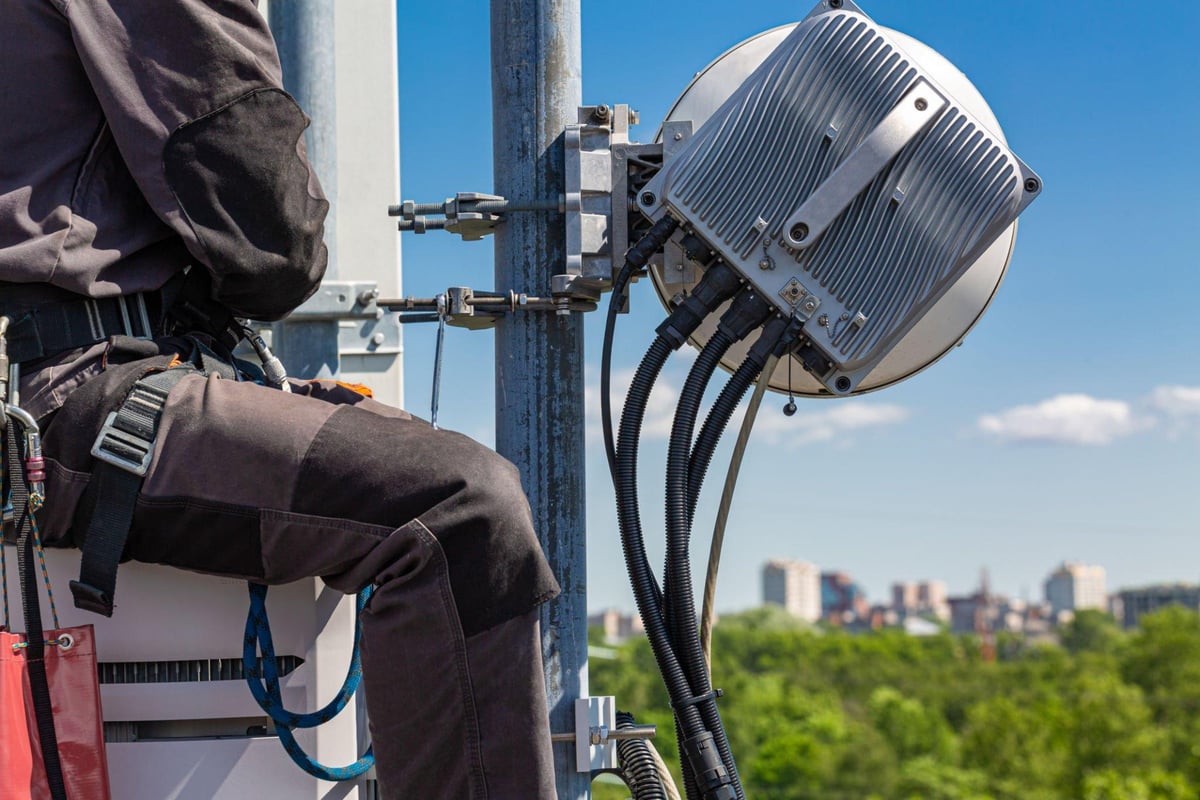
Financial aid (may be available)

No cost info

Financial aid (may be available)

Financial aid (may be available)
The demand for skilled tower technicians is rising, and Atlanta, Georgia, is no exception. Becoming a tower technician presents a promising pathway for individuals seeking a dynamic career with growth opportunities. With the right training and certification, you can be part of a team that installs, maintains, and repairs cellular, television, and radio towers.

A Tower Technician, sometimes called a Tower Climber, performs installation, maintenance, and repair work on telecommunication towers. These towers can range in height from 50 feet to over 1,000 feet. The job of a tower technician is physically demanding and requires a high level of technical skill and safety awareness.
Becoming a tower technician requires specific training and certifications. Some of the key requirements include:
Completion of a Tower Climber Safety and Rescue training program: This program provides the fundamental knowledge and skills needed to work safely and efficiently on telecommunication towers.
OSHA 10-hour or 30-hour training: The Occupational Safety and Health Administration (OSHA) offers these courses to help workers understand their rights and responsibilities and learn about workplace hazards and how to avoid them.
When searching for a tower technician training class in Atlanta, there are several factors to consider:
Comprehensive Curriculum: Ensure the program covers all the necessary areas, such as safety procedures, installation and maintenance techniques, and equipment handling.
Qualified Instructors: Look for instructors with relevant industry experience and a thorough understanding of the latest practices and technologies in the field.
Hands-on Training: Practical experience is crucial in this field. The training program should offer ample opportunities for hands-on practice.
Attending a tower technician class involves both theoretical learning and hands-on training. Here's what a typical day may look like:
Theoretical Learning: This may include classroom lectures on safety guidelines, equipment usage, and tower climbing techniques.
Practical Training: This involves on-site training where students practice their learned skills. This could include rigging practices, rescue scenarios, and equipment handling.
The certification process for a tower technician typically involves completing the required coursework, passing an exam, and demonstrating practical skills. Certified tower technicians are recognized for their competence and commitment to safety standards and best practices in the industry.
Jobs for tower technicians can be found through various channels, such as online job boards, networking events, or referrals. Telecommunications, broadcasting, or wireless service companies are often looking for certified tower technicians.
After becoming a tower technician, you might consider further specialization or expanding your skill set. Here are some options:
Advanced Tower Climber Safety and Rescue Training: This is for those who want to take on more advanced roles or specialize in rescue operations.
RF Awareness Training: This program provides an understanding of radio frequency (RF) safety issues, which is crucial for working on telecommunication towers.
Fiber Optics Installer (FOI) Certification: This offers specialized training in fiber optics, a growing field in telecommunications.
There are several other specializations that tower technicians can consider for further career advancement:
Antenna and Line Installation: This involves the installation of antennas and transmission lines on towers.
Tower Inspection: This role requires the technician to inspect and maintain towers to ensure their structural integrity regularly.
Tower Foreman: This is a leadership role where the technician oversees a team of other tower climbers.
The field of telecommunications is ever-evolving, with new technologies and standards emerging regularly. Therefore, continuous learning is key to staying updated and maintaining competitiveness in the job market.
Networking can provide valuable opportunities for job placements and career growth. Joining professional associations and attending industry events can help build connections with industry peers and potential employers.
Becoming a tower technician is a rewarding career with plenty of growth opportunities. You can excel in this dynamic and evolving field with the right training and commitment. Leverage platforms like Dreambound to find the most suitable vocational training programs for those seeking tower tech classes in Atlanta.
Remember to check out other related vocational training programs in Georgia, like How to Become a Certified Medication Aide in Georgia and How to Become a Respiratory Therapist in Georgia. These could provide additional career pathways or opportunities for further specialization after becoming a tower technician.
Dreambound has written many guides to help you understand what it takes to get this certification. If you're curious about the process or requirements in other states, check out our other guides below:
If you're exploring various professional paths, Dreambound has in-depth guides to help assist you. Explore a few of these resources below.
Dreambound's platform allows prospective students to find the right educational program for them through searching, filtering, and connecting with our extensive selection of career & technical education partners.
Dreambound has over 70 programs across healthcare, technology, business, and industrial trades. This includes programs such as Medical Billing, Cybersecurity, and welding.
Some of our schools offer financial aid for those who qualify. Many others offer payment plans, where you can pay the cost of class over time.
Yes, Dreambound offers many online programs. On Dreambound's search, you can filter by online, in-person, and hybrid (part online, part in-person).
Dreambound is completely free for you to use! We are supported by schools and organizations who pay to advertise on our website, so we can offer all of our career resources for free.